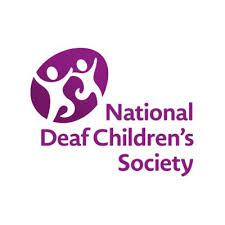The role of the Qualified Teacher of Deaf Children and Young People
Every Local/Education Authority must make adequate provision for the range of needs within its service. This document is written to inform Children’s Services, teachers and their line managers, potential Teachers of Deaf Children and Young People (ToDs) of the range of tasks and skills that are part of the competences required by their nation’s government to meet the specialist mandatory qualification for ToDs*. It is important to identify the role of the Qualified Teacher of Deaf Children and Young People (QToD) and what it brings to the individual deaf learner and to the educational provision for that learner.
This is not an exhaustive list – some QToDs will not be involved in every item and there may be other situations where the QToD is expected to be active. Throughout this document the term ‘deaf’ is used to denote all types of deafness, from mild to profound. This includes deafness in one ear or temporary deafness such as glue ear.
Who is a QToD?
A QToD is a qualified teacher with the skills and knowledge required to provide quality teaching to mainstream learners and with the additional mandatory qualification and expertise in teaching deaf learners. The mandatory qualifications across the UK equip QToDs to work with deaf children and young people from birth to young adulthood. The upper age limit is regulated by each of the respective four UK governments but can be up to 25 years.
What does the QToD do?
- Specialist assessments and interpretation of results
- Interpretation of audiological information and explaining this to those involved with the deaf learner
- Testing and monitoring levels of deafness
- Testing and monitoring hearing aid settings
- Assessing and monitoring functional hearing levels
- Monitoring the acoustic environment in the school environment and advising on ways to improve it for the deaf learner
- Assessing the full range of communication and language levels: including use of sign and spoken language and any other modes of communication
- Ensuring that schools and other settings apply for appropriate access arrangements for statutory assessments and examinations and providing specialist assessments where necessary
- Supporting setting to assess and monitor educational and other outcomes
- Participation in multi-agency assessment to identify overall needs and progress of the deaf learner
- Contribution to mainstream monitoring and review of progress in accordance with the UK nation’s respective Code of Practice, statutory requirements, legislation and guidance.
- Fitting and monitoring assistive listening devices.
- Provision of advice
- Discussing the implications of deafness with the learner, parents and families, teachers, all involved agencies especially in the context of education.
- Sharing information about communication modes.
- Discussion of amplification needs and technological aids.
- Intervention and implementing strategies to meet identified needs.
- Sharing information about other support available.
- Providing information about educational provision; early years/schools/colleges and other educational settings.
- Direct teaching through an enriched language input through:
- whole class teaching
- small group teaching
- team teaching
- 1:1 with the deaf learner
- subject specialism
- key stage specialism
- holistic support
- individualised learning programme
- pre-tutoring
- post tutoring.
- Partnership working A QToD plays an important part in the production of joint assessments, target setting programmes of work and visits to enable the effective support of the whole family. This will involve cooperation and joint working with a range of professionals in:
- schools and other settings, such as with support staff and Communication Support Workers including in supporting access to assessments and examinations
- audiology and oto-acoustics
- general practice
- early years and educational settings
- social care
- speech and language therapy
- mental health
- educational psychologists
- a range of educational support services.
- Working with learners and families:
- provision of clear impartial information
- enabling the learner and family to express their view
- facilitating family and learner access to professional and extended services
- providing relevant and appropriate support.
- Continuing Professional Development:
- keeping abreast of mainstream and specialist developments to inform practice
- keeping up to date with audiological developments and technological developments
- using assessments and interpreting outcomes
- keeping abreast of strategies in education regulated by the respective four UK Governments.
The role of the QToD is diverse. Some QToDs may be employed as
- a QToD in a School for the Deaf
- a QToD in a school-based resource provision
- an auditory implant/cochlear implant QToD
- A pre-school QToD
- A post 16 QToD
- A freelance QToD working as a Specialist Support Professional in higher education
Here are some case studies of different QToD roles
- The role of the CI ToD
- The role of the preschool ToD
- The dual role of a QToD employed in the charity sector and in a LA
Some QToDs, who have successfully completed the additional training, may be employed as Educational Audiologists
NDCS created this short video about the importance of the role of the QToD
Page created by BATOD NEC and updated in June 2023.
*Department for Education (2023)/Scottish Government (2007)



